BCAAs vs Creatine, what's better for women?

When it comes to enhancing workout performance and achieving fitness goals, many women consider supplements like Branched-Chain Amino Acids (BCAAs) and creatine. Understanding their differences, benefits, and suitability can help determine which might be more effective for you.
Understanding BCAAs and Creatine
BCAAs: Comprising three essential amino acids—leucine, isoleucine, and valine—BCAAs play a crucial role in muscle protein synthesis and energy production during exercise. Since the body cannot produce these amino acids, they must be obtained through diet or supplementation.
Creatine: A compound synthesized from the amino acids glycine, arginine, and methionine, creatine is stored in muscles as phosphocreatine. It serves as a rapid energy source during high-intensity, short-duration activities by replenishing adenosine triphosphate (ATP) levels.
Benefits of BCAAs for Women
- Muscle Recovery: BCAAs can reduce muscle soreness and fatigue post-exercise, aiding quicker recovery.
- Protein Synthesis: Leucine, a key component of BCAAs, stimulates muscle protein synthesis, promoting muscle maintenance and growth.
- Energy During Workouts: BCAAs can be utilized by muscles for energy, potentially enhancing endurance during prolonged exercise sessions
Benefits of Creatine for Women
Enhanced Strength and Power: Creatine supplementation has been shown to improve strength and power output, beneficial for high-intensity training.
Increased Muscle Mass: Regular creatine use can lead to greater gains in lean muscle mass over time.
Improved Performance: By rapidly regenerating ATP, creatine allows for sustained high-intensity performance, delaying fatigue.
Choosing Between BCAAs and Creatine
Fitness Goals: If your primary aim is to enhance recovery and reduce muscle soreness, BCAAs may be more beneficial. For increasing strength, power, and muscle mass, creatine could be the preferred choice.
Dietary Intake: Individuals with sufficient protein intake may already receive adequate BCAAs from their diet, potentially reducing the need for supplementation. Creatine, while also found in foods like red meat and fish, may require supplementation to achieve performance-enhancing levels.
Training Type: Endurance athletes might benefit more from BCAAs due to their role in energy production and fatigue reduction, whereas those engaged in high-intensity, short-duration activities may find creatine more advantageous.
Now, considering these recommendations, here are our top picks for BCAA and creatine supplements tailored for women, along with the reasons for our selections:
Recommended BCAA Supplements:
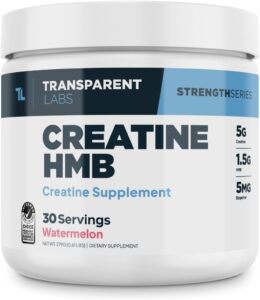
Transparent Labs BCAA Glutamine
This supplement combines BCAAs with glutamine and vitamin C, supporting muscle recovery and immune health. It contains no artificial colors or sweeteners, making it a clean choice for your body. However, it is priced higher compared to other options.
✅ High-quality ingredients with clinically effective doses.
✅ Includes electrolytes for improved hydration. ✅Third-party tested for purity.
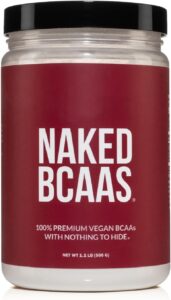
Transparent Labs BCAA Glutamine
Offering vegan-sourced BCAAs without additives or artificial flavors, this is ideal for those seeking a clean ingredient profile. Being unflavored, it may have a neutral taste that doesn't appeal to everyone. ✅ Vegan-friendly and free from artificial ingredients. ✅ Affordable price per serving. ✅Dissolves quickly in liquids.
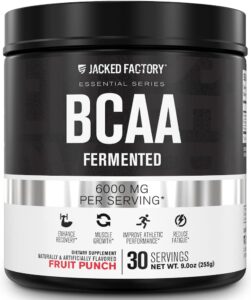
Jacked Factory BCAA – Fermented
This supplement provides high-quality fermented BCAAs designed to enhance recovery and muscle growth. It's a popular choice among women seeking an effective and trustworthy product. ✅ Contains the recommended 2:1:1 BCAA ratio. ✅ Fermented BCAAs are rapidly absorbed. ✅ Free from artificial fillers.
Recommended Creatine Supplements:
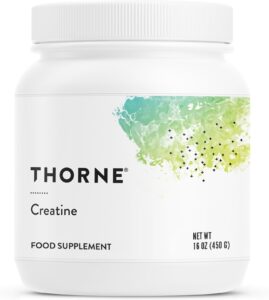
Thorne Creatine
This creatine monohydrate supplement is renowned for its purity and effectiveness. It's NSF Certified for Sport, ensuring quality and absence of banned substances. However, it may be more expensive than other brands. ✅ Pure creatine monohydrate without additives. ✅ NSF Certified for Sport, suitable for athletes. ✅ Unflavored, easily mixes with other supplements.
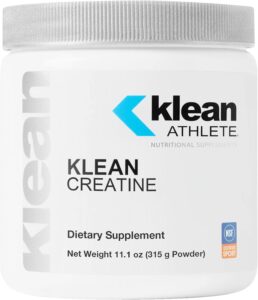
Transparent Labs Creatine HMB
Combining creatine monohydrate with HMB, this product may boost muscle growth and strength. It's a favored choice among women looking to maximize their training results. ✅ Includes HMB and vitamin D3 for enhanced muscle preservation. ✅ Free from artificial sweeteners and colorings. ✅ Third-party tested for quality assurance.
Important Considerations:
Quality and Purity: Opt for supplements that have undergone third-party testing to ensure purity and quality.
Personal Goals: Select products that align with your specific training objectives and dietary needs.
Professional Advice: Before starting any supplementation, it’s advisable to consult with a healthcare professional or nutritionist.